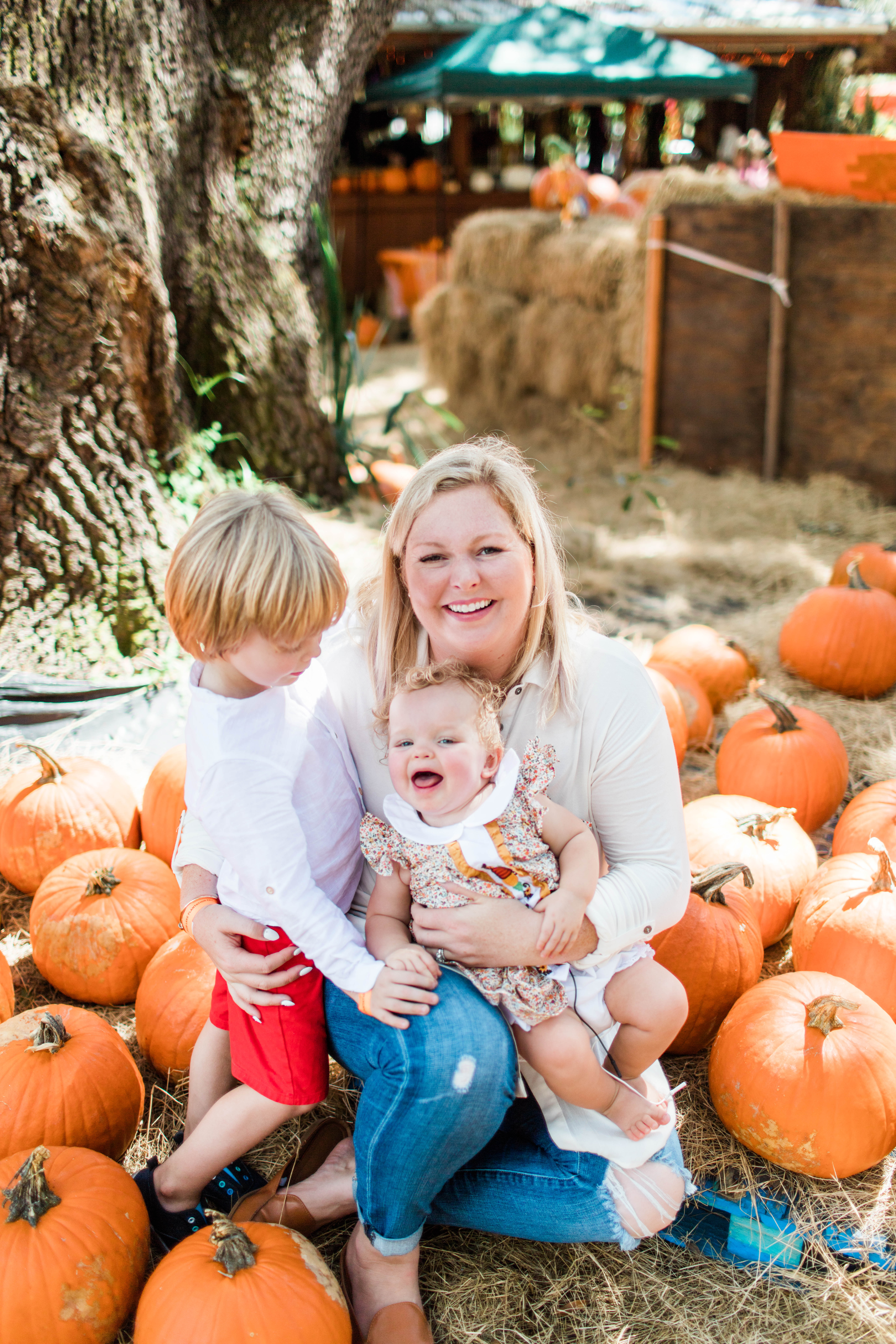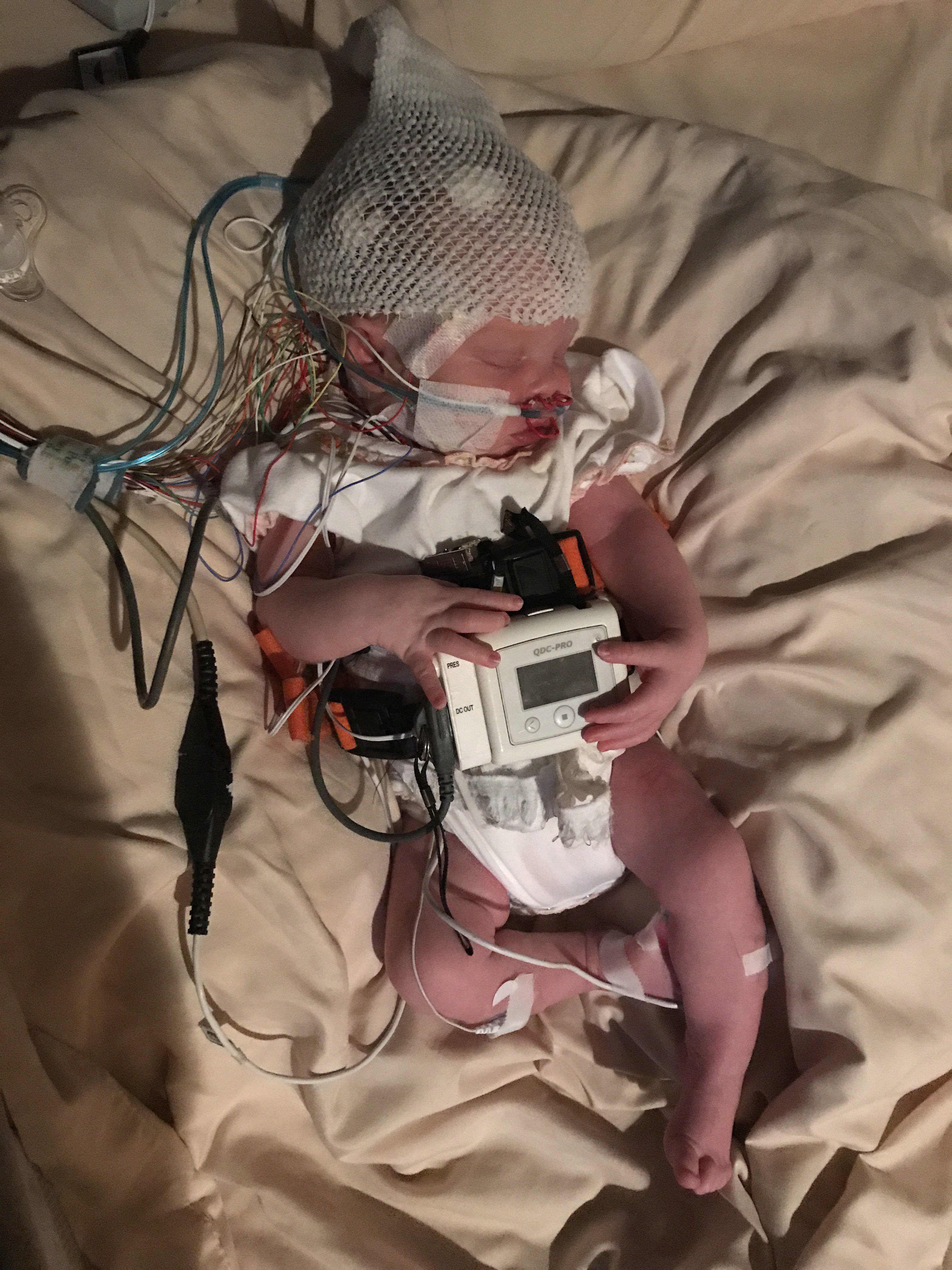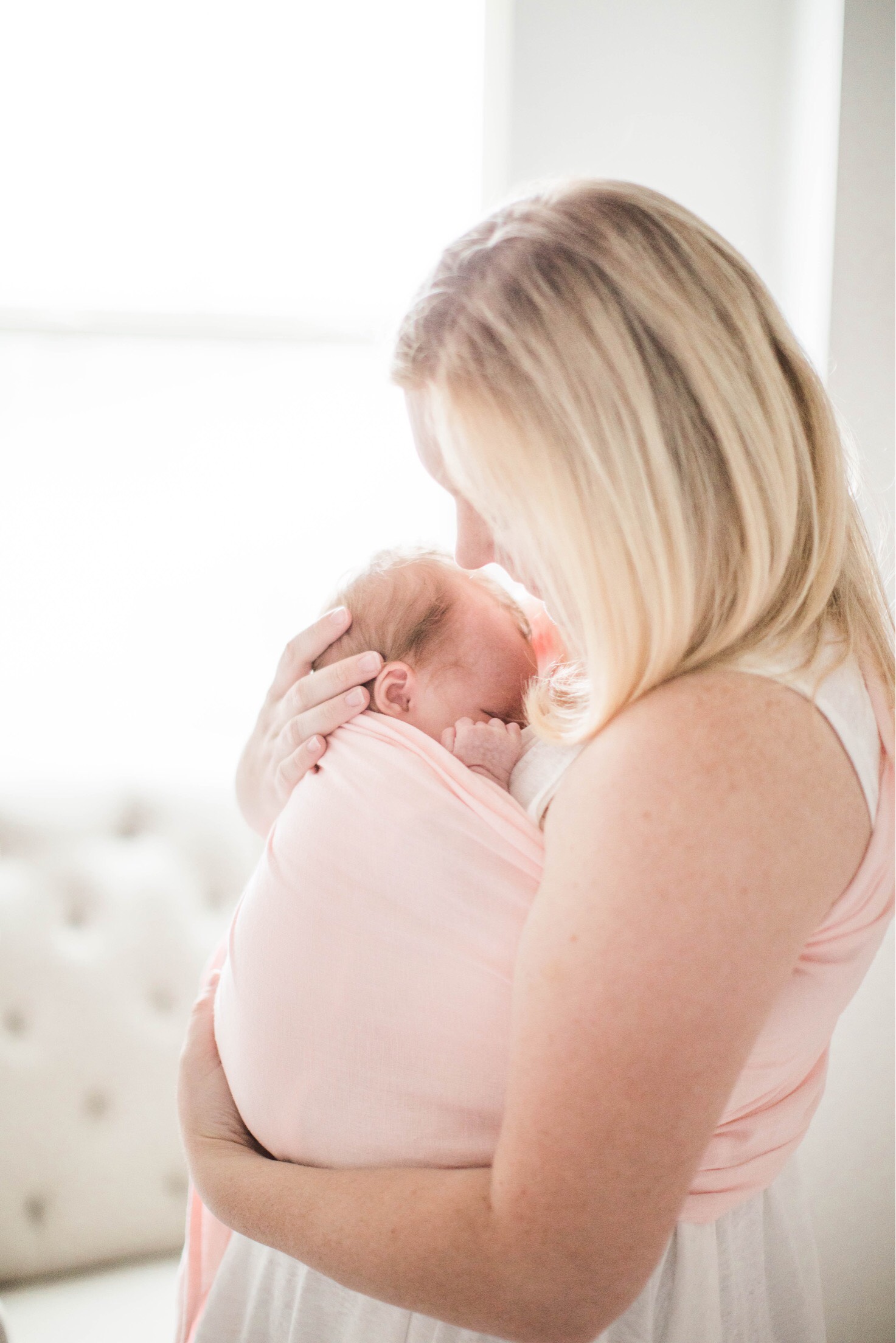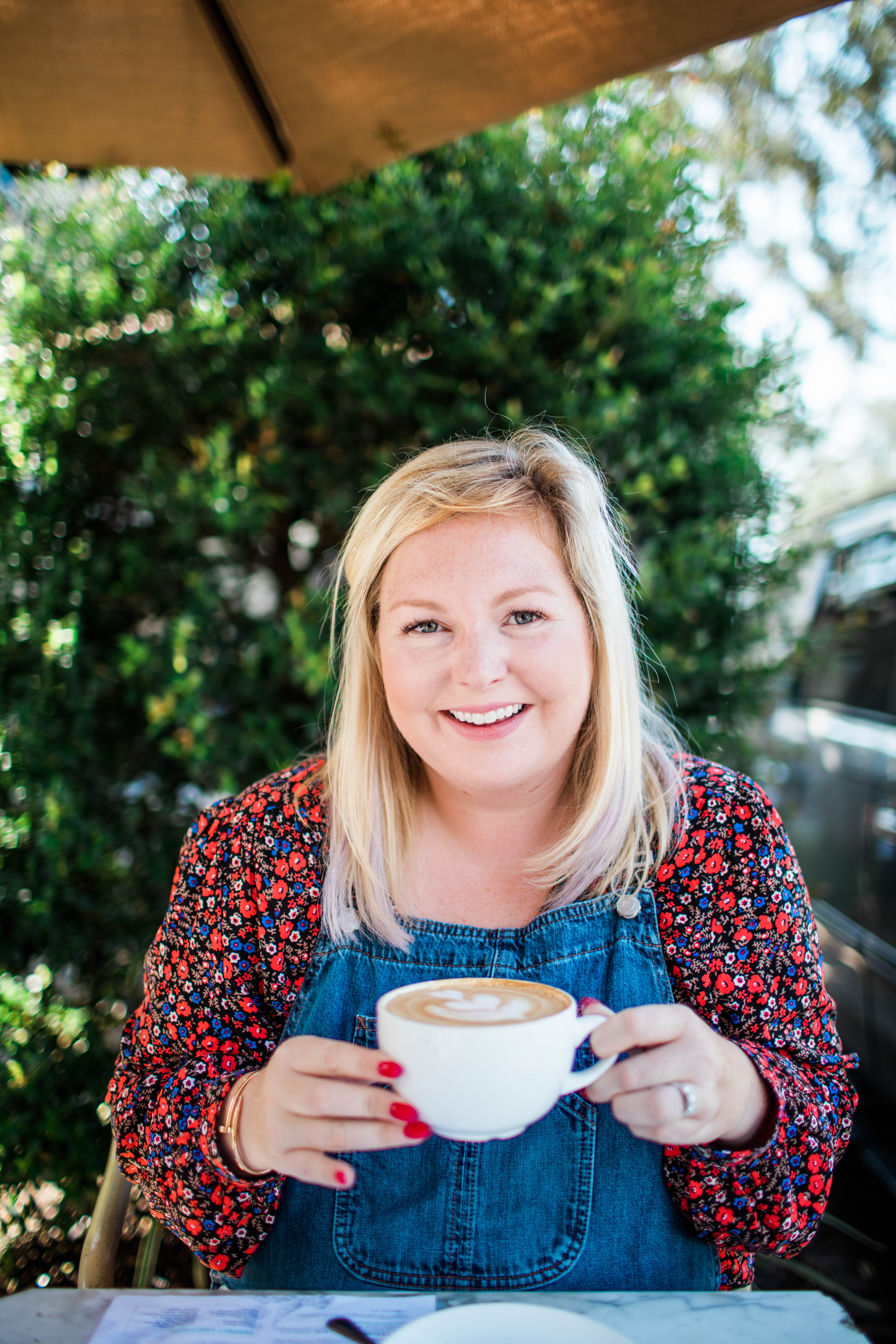
These two, and my husband behind the camera, are my world. We’ve had happy times, and we’ve had tough ones (I’m looking at you, central apnea), but I’m grateful to say that I’ve had more happy times since March of this year because I sought treatment for my postpartum depression. Today is World Mental Health Day, and today I’m opening up about my journey accepting that I have postpartum depression and how I’m managing it.
“You look like shit.”
That is a comment that was made to me in a phone call over speakerphone in my car, with my son sitting in the backseat and hearing every word. It was March, and my life was falling apart. Eloise hadn’t been out of the hospital for more than six weeks from her ten-day stay in the pediatric ward, and she was having more issues again. Walter was struggling at his school, Medicaid wasn’t picking up any of Eloise’s medical daycare bills, and I was looking at over $30,000 of unpaid medical charges. It was all too much to bear and I felt at that moment that I should believe those words, because why not? These were words that I had thought of myself, but having someone say them to me must mean that it’s true, right?
—
There are a lot of things that come with having a child that is medically complex, and for us, we were taken by surprise by her diagnosis at eight days old. We had new “accessories”, we had new doctors, and we had an overwhelming sense of insecurity. After Eloise had her second sleep study, we were direct-admitted to the hospital because Eloise’s apnea was so severe and we I was even taken into a room and given “the talk”. You know, the “she-might-not-make-it” talk. Peter and I were so concerned about Eloise that we didn’t really talk about how we were doing. Peter was checked out of it all (his coping mechanism), and I stepped up and handled all of the medical questions, tests, and procedures with as much calm as I could. There were no support groups for Eloise’s conditions, and I felt so alone.

“I’m fine, I’m fine.”
I don’t know how many times I’ve said this in the past fourteen months, but if I’m a betting person I’d say the number is well into the upper hundreds. I didn’t want attention brought to me, I didn’t want anyone to think that I was losing it on the inside. I wanted to look strong, in control of things, and I absolutely wanted to look and feel grateful for the baby that we prayed so hard for. You know, because people are judgey and can say stupid things.
The Zoloft that was described to me back in October by my provider wasn’t settling the dark thoughts that kept creeping in. I didn’t tell Peter how I actually felt because I didn’t want him to think anything less of me. I didn’t want him to think that I was unstable, unable to care for our children, and I certainly didn’t want him to not trust me around our little ones. I felt backed into a corner, I couldn’t control my emotions, and I felt like I was suffocating. Days were merging together, and I was tired of “faking it”; I was tired of putting on a face that wasn’t me. It was easier to put on the verbal bandaid, “I’m fine,” than to address the issue.
It took those words, the “You look like shit,” in March to make me snap. I lost it. I really freaking lost it, but it wasn’t until days after that I realized how damaging those words were, and still are. At that moment I felt those words were true, and I was spinning around the drain. I felt like all was lost, I was a POS to my kids and I was ready to end it. It was one of the darkest moments of my life, and it was a close friend who said that comment which made it that much worse. She had seen the real life, the ups and the downs, and all of the stress and anxiety with Eloise’s conditions, and I felt gutted by those words. Walter came in my bathroom a few days later and caught me crying in my bathroom, and he said, “I miss you, Mommy.” Those words were a total gut-job to my heart, and I knew I had to get better. For me, for my husband, and for my kids.

I know exactly why it was so difficult to make the phone call to schedule an appointment with a psychiatrist. For as long as I can remember, mental health was something that wasn’t talked about. It just wasn’t something to do, to be like, “Yep! I have depression!”. I finally gave in, and talked to Peter about how I felt. While I knew he wouldn’t, I was terrified that he’d look at me differently, like a failure of a mom. And he didn’t. I was given an embrace with loving arms, and support that I couldn’t have even dreamed of. “We’re in this together,” he said.
I made an appointment for the next day with a doctor that I had never met, and I poured my heart out to her. She heard about everything, about our daughter, about our marriage, and about me. She listened, she really listened. As the words left my mouth, the stigma that comes with talking about mental health went right with them. After an hour of talking, she offered to prescribe some medication that would take edge off of the anxiety and to control the diagnosed severe depression I was having. I was willing to take just about anything to be balanced again so I accepted, made another appointment for the following week, and left. Why was this so hard?? The angst over making the appointment and being afraid of losing myself into psychiatric medications had nothing on the positive effects I felt with my medicine within the first few days. I felt like “me” again, and I still do.
Postpartum depression doesn’t discriminate, it doesn’t seek out the weak, and it affects one in eight mothers. It doesn’t have a “face”, and it can be hidden (hello, me!). But the thing is this, it shouldn’t be hidden. There shouldn’t be so much negativity toward mental health, and especially to those who seek it.
It’s been seven months since I sought out help for my postpartum depression, and it’s one of the best things that I’ve done for myself and for my family. I have friends and family who are incredibly supportive of me and seeking treatment, and I couldn’t be more thankful. The one thing I wish I could tell myself a year ago is to seek help sooner. I can only imagine how much more present I could’ve been within Eloise’s first seven months of life, and while I feel that I missed out on a lot during my undiagnosed severe depression fog, I am so incredibly thankful for the medications that I’m on now and for the memories that I’ve been able to make with my family, especially the happy ones. So today, on World Mental Health Day, I’m going to break the stigma cycle with mental health.
Hi! my name is Faison Weiss, and I’m a wife and mom. I’m also a photographer, a lifestyle blogger, and I’m owning my postpartum depression.




Dearest Faison, thanks for opening your heart. Remember you are loved and admired as s mother, wife, sister, and grand daughter. Now we can add “brave” to your attributes.
My love, gramy/gigi